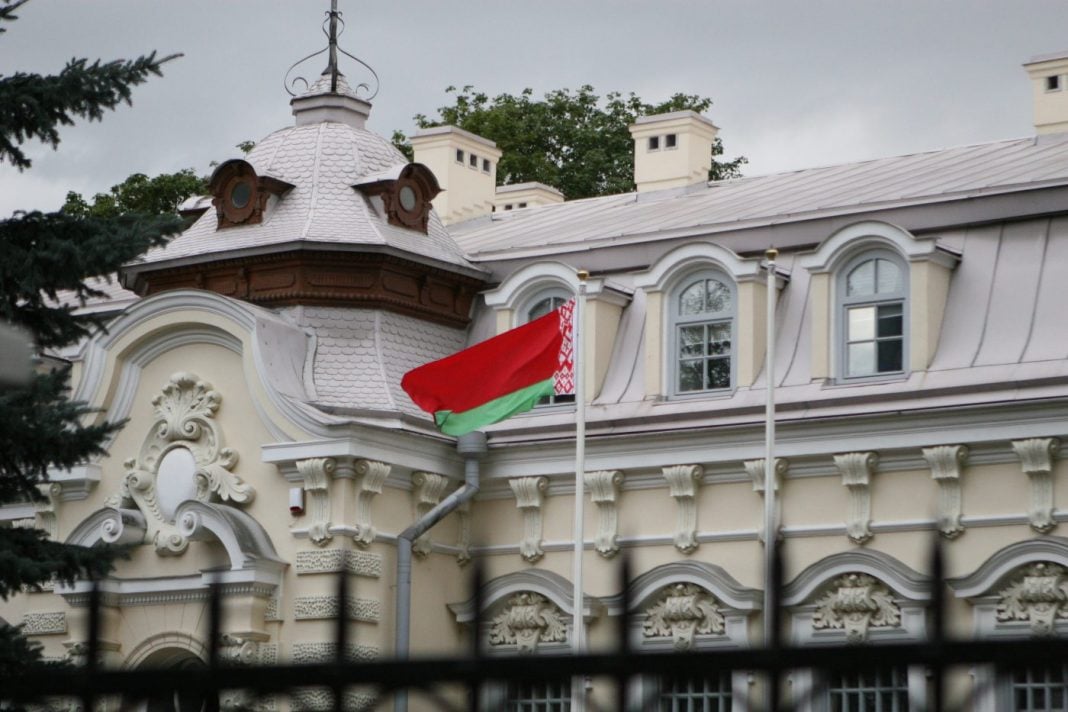The pseudohistorical “Litvinism” is stirring discord between Lithuania and Belarus.
By Edward Lucas, for CEPA
A half-forgotten, half-baked theory which argues that modern-day Belarus is the rightful heir to the Grand Duchy of Lithuania might seem as arcane and trivial as arguments about the legacy of the Holy Roman Empire. But regardless of its questionable factual basis, Litvinism, as it is known, fulfils three important Kremlin goals. It attacks modern Lithuanian statehood. It stokes rows between the Belarusian opposition (largely based in the Lithuanian capital Vilnius) and their hosts. And it creates divisions within Lithuania’s government.
In one sense the argument is worse than absurd. As Ukraine fights for survival, all Kremlin foes should drop their differences and help. Focussing on historiographical intricacies looks nerdy and self-indulgent. Other Europeans have overcome far more recent and bitter rows. If countries occupied by Nazi Germany in living memory can step over the historical shadows of the Second World War, surely Lithuanians can stop fretting about what happened eight centuries ago. Quirks and contradictions abound when history, geography and language overlap. The most famous poem in the Polish language, Pan Tadeusz by Adam Mickiewicz, starts off “Lithuania! My Fatherland;” that is cause for celebration, not acrimony.
Yet Litvinism does matter. At a minimum, it could be part of a Kremlin project to delegitimise Lithuanian statehood. A recent book published in Moscow, with an approving foreword by the foreign minister, Sergei Lavrov, made similar arguments. Few should need reminding that Vladimir Putin’s war in Ukraine began with pseudo-historical attacks on Ukrainian statehood.
That fuels another, related worry: about the tens of thousands of Belarusians who have sought political (or economic) refuge in Lithuania. Would Litvinists among them fight to defend Vilnius from a putative attack by the regime in Minsk, perhaps following this fall’s Zapad-25 joint military exercise with Russia? Some might even welcome the “liberation” of Vilnius from Lithuanian “occupiers?”
Sceptics say these people are unlikely fifth columnists. They have, after all, fled the Lukashenka regime, and would risk a nasty fate in its hands. All mainstream Belarusian opposition leaders and groups insist, repeatedly, that Litvinism is marginal. But enough Belarusians have made public remarks about orthography, ethnography, geography, history, and other contentious issues to leave Lithuanian nerves jangling. Whether these are unwise, deliberately rude, or outright sinister depends on your viewpoint.
Size matters here. Seen from the west, Belarus is a benighted backwater. Seen from Lithuania, it is a potentially menacing Russian proxy, with a 10m population, three times bigger than Lithuania’s. The capital Vilnius (a historically Belarusian city according to Litvinists) is a precarious 35km from the Belarusian border.
A recent row concerned ID documents issued by the Belarusian exiled opposition leadership, which featured the Grand Duchy’s ancient prancing-horse emblem. The Pohonia, with the tail down, is the Belarus version; the Vytis, with tail up, the Lithuanian one. Plenty of countries share happily share national imagery (Estonia and Finland have the same melody for their national anthems, for example). But the move prompted protests from Lithuanians, and then resentment from Belarusians.
In short, Litvinism may be nonsense, but it is divisive nonsense. It has also fostered discord in Lithuanian society and government. The armed forces’ strategic communications department is hyper-vigilant about Litvinism; other agencies, such as the VSD security service, are much more worried about the Minsk regime’s use of Belarusian diaspora members for sabotage and other stunts, including attacks on opposition leaders. Indeed, the VSD said recently that that a Kremlin influence operation is “trying to stage conflicts between opposing forces—Belarusians who advocate for Litvinist ideas and so-called Lithuanian groups who appear to resist them.”
Vigilance is in order. So is a sense of proportion.
By Edward Lucas, for CEPA
Edward Lucas is a Senior Fellow and Senior Advisor at the Center for European Policy Analysis (CEPA).
Europe’s Edge is CEPA’s online journal covering critical topics on the foreign policy docket across Europe and North America. All opinions expressed on Europe’s Edge are those of the author alone and may not represent those of the institutions they represent or the Center for European Policy Analysis. CEPA maintains a strict intellectual independence policy across all its projects and publications.





